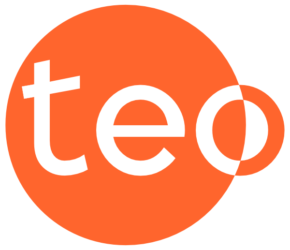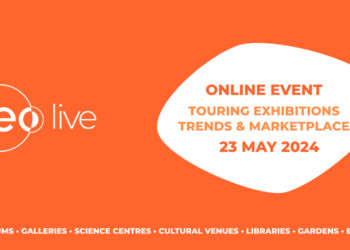The outbreak of COVID-19, is massively challenging organisations and individuals, personal and professional lives globally. Travelling exhibitions are strongly impacted and disrupted by this unparalleled crisis.
Exhibitions which are in transit or about to be installed are suffering from last minute cancellations, while those which are currently running or about to open are turning into ghost spaces as an increasing number of temporary closures of cultural and experience institutions are gradually occurring worldwide.
As the virus unfolds throughout the world and events are cancelled and travel gets banned, project teams and potential partners can no longer follow the usual practices for the development of collaborations on travelling exhibitions.
In this context of uncertainties, it is more important than ever to emphasise social interactions and find ways to humanise communications. It is essential, during this time, that we continue dialogue and share ideas, to collectively build resilience and get together through this unprecedented crisis.
We are sharing ideas here to support international communications and propose to widen the Teo space for discussion and brainstorm on the future of travelling exhibitions with an open call for articles and posts in the Teo Journal and the creation of one new resource, the Teo Experience Gallery.
It is essential to continue dialogue and share ideas, to collectively build resilience.
Meeting teams and partners
A variety of resources can effectively enable international communications and remote collaborative work. In this context, video conferencing becomes an even more essential resource, to really convey our communication, not only with voices, but also with gestures and expressions. And now could actually be an opportunity to really take the time to meet that partner on the other side of the world, as we somehow have to pause and do things differently. A selection of easy-to-access and easy-to-use tools is presented here in collaboration with Culture Connect.
Real time media for remote meetings and presentations
Video conferencing solutions provide tools to create virtual meeting rooms for face-to-face and group video meetings, screen sharing and video recording.
Zoom and Whereby propose easy direct access for video meetings with no login and no download required for participants. The organiser creates a virtual room by setting up and sharing a custom URL with participants. Connect unlimited attendees for 40 minutes with the Zoom FREE option. Connect up to 4 participants for an unlimited time with the Whereby FREE option.
Skype is a free video meeting service that is downloaded on the user’s device, and can connect up to 50 participants (“Meet Now” option: no login and no download required for attendees). The service is available on desktop and mobile.
Google Hangouts offers easy video meetings for Google users. Users can send invitations to connect up to 25 participants. A free Google account is required for each participant and for the organiser. The service is available on desktop and mobile. Google is making the premium version of its workplace video chat tool free until July, to help businesses and schools work remotely during the coronavirus crisis (more detail here).
Microsoft Teams offers comprehensive video conversations and collaborations for Microsoft users. Users can send invitations to connect up to 300 attendees. A free Microsoft account is required for each participant and for the organiser.
Project management tools
Collaborative project management tools offer workspaces for sharing ideas, brainstorming, collaborating on documents and sending files:
- Slack: create discussion channels, share ideas and documents (free, premium versions available)
- Padlet: create and collaborate on content (premium only, 30-day free trial)
- Beautiful.ai: design, collaborate and share presentations easily (free, premium versions available)
- Monday.com: manage a distributed team in one central place (premium only, free trial available)
- Miro: build and develop ideas with distributed teams (free, premium versions available)
- Ideaboardz: gather inputs, reflect and retrospect with distributed teams (free)
- Google Docs: collaborate on a single document at the same time (free)
Knowledge management dedicated tools facilitate the sharing of documents with team members or partners:
- WeTransfer: no account required to send files of up to 2 GB with 7-day storage
- FromSmash: no account required to send files with 14-day storage
- Dropbox: 2 GB of free space to store and share files
- Google Drive: store and share your documents, up to 15 GB
Working around time zones
Time converters can be used to check time differences and propose accurate meeting times:
- 24 Timezones
- World Clock Meeting Planner
- Miranda App (app available for download from your mobile device)
Email schedulers, often proposed with messaging systems, make it possible to send messages to international partners at a relevant time.
Cultural institutions have also been developing new ways to engage remotely with audiences, which can be a great inspiration for travelling exhibits communication.
Visiting exhibitions
How can cultural specialists looking for future exhibitions get a good idea of proposed experiences without visiting the physical productions? Nothing can ever replace the real experience of a physical exhibition, but narratives, collections, educational content and experience assets can be well explored remotely through secondary materials and platforms. In an intrinsically global industry, cultural producers always develop communication material and resources which provide peers with essential information on travelling exhibitions. Cultural institutions have also been developing new ways to engage remotely with audiences, which can be a great inspiration for travelling exhibits communication. Visiting exhibitions from home is made possible with these resources.
Exhibition proposals
Proposal presentation documents: the most common way to explore a potential exhibition is the review of presentation material proposed by producers. Comprehensive proposals include full narrative outlines, audience information, collection lists, education and media packs and photography.
Video discovery
Promotion or exploration videos: designed by exhibition producers to introduce or share the experience, presented on their websites and on platforms.
Live online presentations: live streams of open exhibitions, when institutions are still open or reopen, can offer a live visit with local colleagues and curators.
Online collections and explorations
Online exhibitions and VR experiences: exhibitions are reproduced digitally to be shared online, either as photographic explorations or with 3D spatialisation and virtualisation. VR can offer virtual tours with full spatial perception, enabling a more sensorial encounter with displays. In China an exhibitions portal where cultural institutions share projects online was created as a response to the crisis. Art Basel has created a “viewing rooms” digital event to propose an alternative to the cancelled Art Basel Hong Kong fair.
Exhibition Apps, audio guiding stories and games: sharing access to some curated mobile device content.
Teo new resource: Teo will open soon the Experience Gallery, a virtual visit page with videos of exhibitions from international producers. Producers are encouraged to share their VR, gaming and video content in this special section of the website to facilitate exhibition discovery.
Solutions are coming together and more will come, to help us brainstorm remotely, share ideas and crowdsource resources at a larger scale and level.
Informing and brainstorming with the community
Diversity is our strength. In these challenging times, a wider and higher level of communication is even more essential to stir creativity and support members of the community professionally and morally, and to collectively build resilience. In our very proactive and creative industry, solutions are coming together – and more will come – to help us brainstorm remotely, share ideas and crowdsource resources at a larger scale and level.
Crisis communication
Organisation updates: keeping the community posted on ideas, challenges and achievements through the channels of producing and hosting organisations when possible. Some organisations have even designed a dedicated webpage, such as GES. Monitoring the situation via listening tools such as media feeds help us to remain aware and gather useful information.
Forums for discussion
Community forums are proposed by major networks. For example, the Travelling Exhibits Network of the American Alliance of Museums (AAM) has just created a LinkedIn group, and Ecsite, the European network of science centres and museums, launched a LinkedIn peer-to-peer exchange forum and a series of online drop-in sessions for its members.
Special page: Teo has opened a special page dedicated to articles and discussions addressing the issues triggered by the current crisis. Professionals can share posts, news and articles in a dedicated page. The space is designed to welcome ideas, updates and questions from members of the travelling exhibitions community and to foster collective dialogue on the crisis and the future of international touring.
The travelling exhibitions industry is facing unprecedented disruption. All stakeholders of the very unique value networks of the touring world are confronted with uncertainties and challenges that are complex to tackle individually. Continuing international dialogues on travelling exhibitions is a key challenge our community is trying to address. Finding new ways to communicate with peers and partners, to explore exhibitions and to collectively reflect on the situation can contribute to building collective resilience and can help to prepare our community for future challenges.
Share ideas and experiences
Tell us about your experience of the crisis and how it is impacting your travelling exhibition activities.
Sources
Art Basel. (2020, 20 February). Art Basel launches Online Viewing Rooms. Retrieved on 16 February 2020 from https://www.artbasel.com/stories/online-viewing-rooms-announcement
Ciecko, B. (2020, 2 March). How Museums and Attractions are Preparing and Responding to Coronavirus. Retrieved 16 February 2020 from https://cuseum.com/blog/2020/3/2/how-museums-and-attractions-are-preparing-and-responding-to-coronavirus
Whiddington, R. (2020, 14 February). Virtual Tours and Gamification, China’s Museums Pivot Content for Coronavirus. Retrieved 16 February 2020 from https://jingtravel.com/virtual-tours-gamification-online-exhibitions-chinas-museums-coronavirus/





